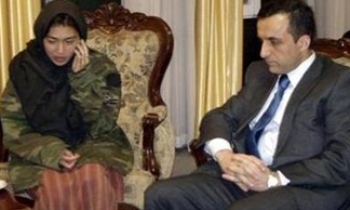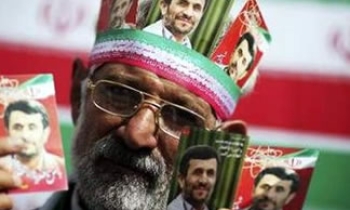"In the United States, for example, increasingly, the practitioners of mainstream journalism are holders of post-graduate degrees, often with relevant first degrees in such disciplines as Political Science, Sociology, Anthropology, Science and Technology, Law and International Relations as well as Linguistics and Religions.
In recent weeks, intense public debate in the global Ghanaian, and African, community has focused on the quality of the proverbial "inky" practice, or fraternity. Of course, while traditionally the term "Journalism" has referred to the print media, these days the term broadly encapsulates the various avenues of mass communications, namely, print or newspapers and magazines; broadcast, both radio and television as well as cable networks and the Internet, particularly as the latter medium has been appropriated by professional practitioners of the trade to inform either a local or global community or both.
Overall, there is a general agreement that the quality of journalistic praxis on the African continent, especially in the so-called Sub-Saharan Africa, widely regarded as also the least technologically developed in the region, leaves much to be desired.
Intellectual and professional eyesore
The problem here, however, is that there is almost no uniformity of agreement regarding just exactly what makes the journalistic trade, as practiced in Africa, the intellectual and professional eyesore that it has come to be deemed. For instance, in a recent matriculation address given to "freshmen" students of the Africa Institute of Journalism and Communications (AIJC), Professor Ralph Akinfeleye of the University of Lagos, Nigeria, passionately decried what the chairperson of the Journalism department of the quite renowned UNILAG termed as the virtual absence of "journalists with conscience."
And as reported from Accra-Ghana, where the Africa Institute of Journalism and Communications is located, the Ghana News Agency (GNA) correspondent who covered the event also listed four categories of pedestrian journalists and journalism which no well-meaning aspiring media practitioner ought to look up to for either tutelage or role-modeling. These were listed as "Cocktail, Next-of-Kin or Cedi-Naira, Protocol [and] General Order" Journalism.
And as the GNA reporter cast it, for Professor Ralph Akinfeleye it appears that almost no media practitioner on the continent is devoid of criminal culpability for pursuing either one or any combination of the preceding categories of journalism.
Personally, I would have loved to have had the GNA correspondent explain each of the preceding categories, as I am quite certain Professor Akinfeleye did to the students, staff and guests who attended the matriculation ceremony at the AIJC. The GNA reporter appeared to be quite fascinated by the description provided by the keynoter vis-à-vis what constitutes "Cocktail Journalism," and thus this terse and poignant reportage: " 'Cocktail Journalists' were numerous and always found at parties, marriage ceremonies, chieftaincy installations [and funerals?], Professor Akinfeleye said, adding that 'after they are heavily drunk and fed, they go back to the newsroom with heav[ily] dressed-up and coloured news items of what did not happen at the cocktail.'
He [also] said [that] although journalists are supposed to cover parties, they should not compromise their credentials [credibility?] and professionalism with cocktailing" (Ghanaweb.com 12/3/05).
Those who know anything about the journalistic profession, or trade, appreciate the fact that the obvious thrust of the UNILAG departmental head's argument had little to do with "cocktailing" as such. Indeed, what Professor Akinfeleye appeared to be calling for was a Code of Journalistic Ethics.
In other words, every reputable and socially responsible trade has laid-down rules of optimal professional conduct. For instance, the legal and medical professions have modes of professional conduct or etiquette beyond whose practical bounds the culprit seriously risks being proscribed or decommissioned.
Right to free expression
Unfortunately, by virtue of being central to the democratic right to free expression, in the highly advanced democracies, such as the United States, no hard-and-fast rules have been laid down for the practitioners of the journalistic trade.
But, of course, such absence of strict regulation in no way implies that journalists would be able to get away with just about anything, including the sort of pat and routine practice of character assassination that is heartily encouraged by both practitioners and public alike in many an African country. Professor Akinfeleye, for example, cited the sordid rampancy of the preceding state of affairs among the practitioners of his trade in Ghana, Nigeria, Senegal and Liberia, at least as the GNA correspondent reported it.
In the United States, while journalists are accorded free rein, in terms of the lack of professionally stultifying regulations, nonetheless, ours is a highly legalistic and litigious society in which the privacy of individuals, even public officials, and their right to protection from gratuitous breach of such, is jealously guarded.
In sum, any sophomoric attempt on the part of media practitioners to scoring cheap political or professional points is systematically mitigated by the veritable threat of judicial sanction for libel. And the courts of law, while generally liberal and appreciative of the indispensable centrality of journalism, and thus the people's right to be fearlessly and candidly informed about the diurnal goings-on in government and society in general, are neither soft on those media practitioners loath to the diligence - in the form of critical thinking and investigative skills - that naturally comes with the lofty practice of the trade.
Consequently, in almost all major media establishments, if they are not to be run out of business, and out of town, in short order, there are established rules of conduct, any breach of which, however minor, could well find an editor or reporter, and even in some cases a publisher, suddenly out of luck or unemployed.
This salutary establishment of protocol, until quite recently, was virtually non-existent in most of the continent, that is, both Sub-Saharan and Saharan, or the Arabized and Berber-dominated north. This is because until very recently, the various African governments, largely military and civilian dictatorships, almost exclusively controlled the media.
And even where theoretically, or constitutionally speaking, the government claimed to recognize a free-market of ideas, such recognition was largely a façade erected to please the proverbial international community, rather than either as a matter of principle or a recognition of the need for such an avenue in order to salubriously promote intellectual, cultural, economic and political development.
Thus in Ghana, for example, we have had the sterling likes of John Kugblenu incarcerated and tortured and allegedly murdered, by the induction of slow-death, under the P/NDC regime headed by Mr. Jeremiah John Rawlings; we have also had hitherto fearless and dedicated professionals like C. S. Buabeng and Amamo Kakra, among others, manhandled by barely literate soldiers in the name of "Revolution." And so to be able to effectively troubleshoot the apparently intractable or terminal, malaise of African journalism, one has to candidly contextualize the deleterious environment in which the continent's journalists have had to operate for nearly a half-century of postcolonial rule.
Indeed, Mr. Kojo Yankah, the president of the Accra-based Africa Institute of Journalism and Communication (actually, the GNA correspondent designates it as the Africa Institute of Journalism and Training, even while also giving the latter's letter-abbreviation or acronym as AIJC), may himself have a none-too-palatable story or two to retail or narrate regarding the former director of the Ghana Institute of Journalism's own experiences with the Rawlings-chaperoned P/NDC governments.
In sum, to pontificate, as UNILAG's Professor Ralph Akinfeleye recently appeared to do, is tantamount to putting the proverbial horse before the cart. Perhaps the distinguished Nigerian media scholar would have further boosted the morale of the still precarious practice of African journalism, had he fittingly paid tribute to the intrepid likes of Mr. Dele Giwa, of blessed memory, while also expatiating on just what journalists need to do in order to prevent themselves and their ilk from being savagely reduced to the proverbial status of chopped liver or mince meat.
Thus a comprehensive course in DEFENSIVE JOURNALISM or JOURNALISTIC SELF-DEFENSE (with a possible military-training component) would be quite in order, or just exactly what the doctor ordered, as it were. In fine, merely equipping cub-reporters with laptop computers and setting them among an untamed, or wild, pack of wolves, needless to say, does not a journalist make; rather, it is systematically instructing these journalists in how to successfully negotiate the dire nooks and crannies of Wolfdom that matters. For unlike in the United States, in Africa, a dead journalist in vulpine clutches is no hero at all but a bloody fool!
Public Relations
In Ghana, part of the problem regarding the generally appalling quality of journalism is largely due to the fact that until quite recently, the best graduates of Mass Communications, from the University of Ghana, preferred to practice the more politically expedient and financially lucrative sub-discipline of Public Relations. A few ended up as editors and news directors at the state-owned Ghana Broadcasting Corporation or the Ghana News Agency.
For the most part, students who ended up at the Ghana Institute of Journalism often did so by default. In other words, unlike what prevails in countries like Nigeria and Kenya, the majority of Ghanaian journalists are non-baccalaureate - or non-college-degree - holders. This simply means that the journalistic profession is not practiced by the best liberal arts-oriented minds; instead, it is the marginally educated Ghanaian who practices journalism. This is in no way to imply that non-degree or non-university-educated journalists cannot excel in the profession - this writer's own uncle, Mr. Cameron Duodu, a media practitioner par-excellence, is a sterling case in point.
Interestingly, however, it bears pointing out that the likes of Cameron Duodu are the exception, not the rule. And in the United States, for example, increasingly, the practitioners of mainstream journalism are holders of post-graduate degrees, often with relevant first degrees in such disciplines as Political Science, Sociology, Anthropology, Science and Technology, Law and International Relations as well as Linguistics and Religions. And lest the cynical critic calls gratuitous attention to the fact that Ghana is not the United States of America, we hereby make bold to riposte: Why do we not demand relatively less of our medical students and lawyers-in-training?
Indeed, we make the preceding observation in order to register our utter perturbation at the fact that the fourth matriculating class of 140 students admitted into the Yanka-led Africa Institute of Journalism and Training will all be awarded only "a two-year Diploma in Communications," and unless these students already possess first degrees in the relevant academic disciplines, then, of course, needless to say, a half-century of formal journalistic training still finds Africa practicing this trade at its most basic infancy.
And this is no sweet or good news to announce to the rest of the world. By all means, let African Journalism be a practice worthy of boasting about in the hallways of the Columbia University Graduate School of Journalism. At least where I come from in Ghana, professional mediocrity is nothing to brag about.
Kwame Okoampa-Ahoofe, Jr., Ph.D., teaches English and Journalism at Nassau Community College of the State University of New York, Garden City. He is the author of "Dr. J. B. Danquah: Architect of Modern Ghana" (iUniverse.com, 2005) as well as eleven other books of poetry and prose, all of which are available from Barnes & Noble.com, iUniverse.com, Amazon.com, Borders.com, Powells.com and Elibron.com. E-mail: okoampaahoofe@aol.com.









